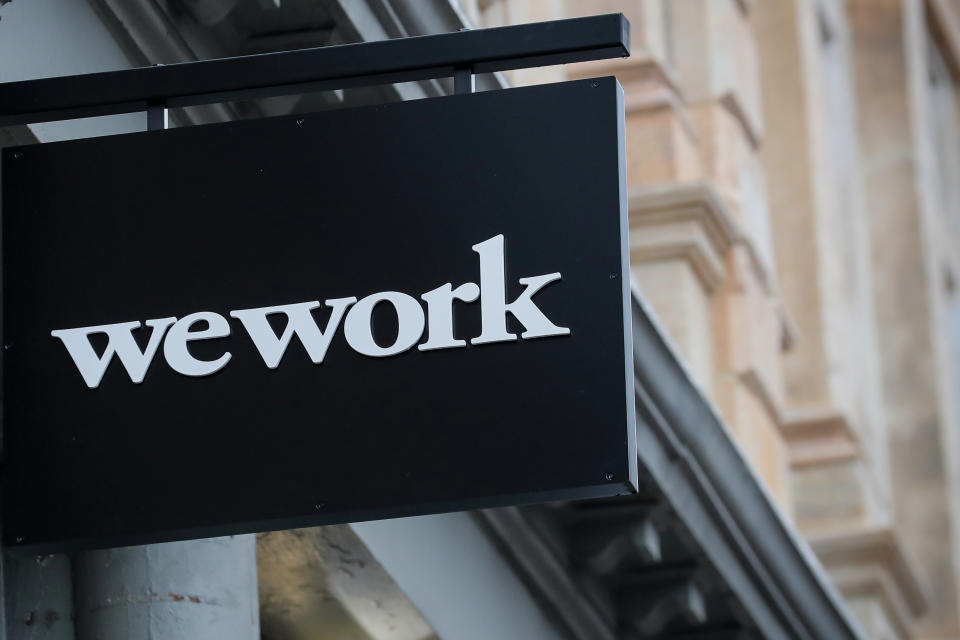WeWork reveals initial public offering filing
WeWork, the workspace leasing company, released its initial public offering filing Wednesday, as the company gears up to become the latest highly valued tech company to hit the public markets.
Revenue, 6m to June 30 : $1.54 billion, vs. $763.77 million Y/Y
Net loss, 6m to June 30: $904.65 million, vs. $722.89 million Y/Y
Members: 527,000, +97% Y/Y
The New York-based company will list under the ticker symbol “WE,” according to a Securities and Exchange Commission filing. It named banks JPMorgan, Goldman Sachs, Bank of America, Barclays, Citigroup, Credit Suisse, HSBC, UBS and Wells Fargo as underwriters for the IPO. The company plans to issue an unusual three classes of stock, with Class A common stock to be sold to the public carrying one vote per share, and Class B and C common stock carrying 20 votes per share.
Earlier this year, WeWork announced it had amended a confidential IPO filing with the SEC, but had disclosed no further terms to the public. The company is reportedly eyeing a September IPO, Bloomberg reported last month.
WeWork rents out working spaces to companies from startups to large enterprises like Microsoft. Earlier this year, it re-branded as the We Company to highlight its broadening lines of businesses, which include the elementary school WeGrow and the coding academy Flatiron School.
The majority of its sales came from office space renting business in major cities in the U.S. and the U.K., including in New York City, Los Angeles, Seattle, Washington, D.C., Boston and London. It operates in more than 500 locations across 111 cities, 29 countries and five continents.

WeWork added Wednesday that it had generated a backlog of committed revenue of $4.0 billion as of June 30, comprising agreements from members the company expects “will drive increasing recurring revenues and cash flows.” This backlog was about eight times the size from December 2017, which the company attributed to an increase in multi-year membership agreements and longer average commitment terms from members.
Earlier this year, WeWork disclosed that for the full 2018 fiscal year, sales doubled to $1.8 billion. Net losses, however, yawned by about the same magnitude, swelling to $1.9 billion for the year. Other newly public tech companies this year have also come to market with steep losses, including Uber (UBER) – which posted losses of $1.8 billion in 2018 – and Lyft (LYFT), with $911 million in 2018 losses.
“We have a history of losses and, especially if we continue to grow at an accelerated rate, we may be unable to achieve profitability at a company level (as determined in accordance with GAAP) for the foreseeable future,” the company wrote in its prospectus.
The company was valued in private markets at about $47 billion earlier this year after SoftBank, the company’s largest investor, committed another $2 billion in January. WeWork has raised more than $12 billion in funding since it was founded in 2010.
—
Emily McCormick is a reporter for Yahoo Finance. Follow her on Twitter: @emily_mcck
Read more from Emily:
Economy adds 164,000 jobs in July, unemployment rate sits at 3.7%
Netflix’s 2Q global paid subscriber additions miss expectations
Tech companies like Lyft want your money – not ‘your opinion’
Follow Yahoo Finance on Twitter, Facebook, Instagram, Flipboard, LinkedIn, and reddit.
Read the latest financial and business news from Yahoo Finance